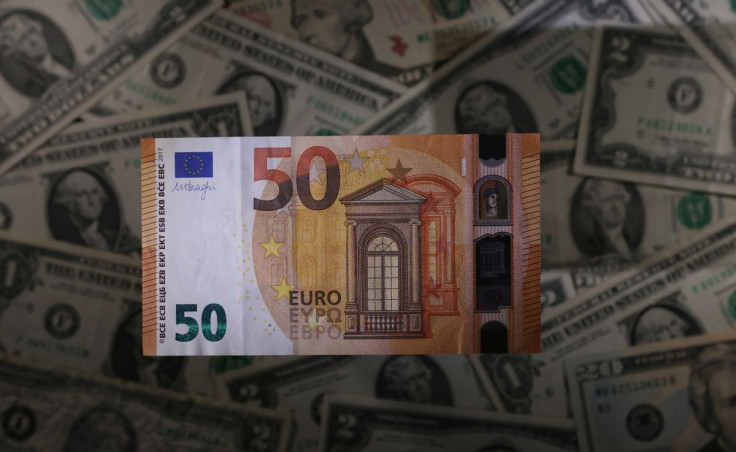Dollar Posts Solid Gains After Hot U.S. CPI Data

The dollar rose on Thursday after a reading of U.S. consumer prices came in higher than expected, pushing the greenback up against major currencies as the data suggested the Federal Reserve could be more aggressive in fighting rising inflation.
CPI rose 0.6% last month from December, the Labor Department said, while in the 12 months through January, the CPI jumped 7.5%, the biggest year-on-year increase since February 1982.
The dollar index, a gauge of the U.S. currency's value against six major currencies, rose 0.38%, as the data marked the fourth straight month of annual increases in excess of 6%.
The hot reading indicated the Fed will raise interest rates when policymakers meet in March, with perhaps a hike of 50 basis points.
"The market is shifting its positioning, it's something that investors can't ignore," said Kathy Lien, managing director at BK Asset Management.
"Ultimately, this is a very dollar-positive number," Lien said. "The confirmation that we've got hot inflation means that it's all-go on monetary tightening."
The dollar rose across the board, particularly against the Japanese yen, as a 50 basis point hike by the Fed will be back on the table for March, Lien said, "I still think they're going to go with 25."
Against the euro, the European common currency fell 0.34% to $1.1383, while the Japanese yen weakened 0.70% versus the greenback at 116.30 per dollar.
The two-year U.S. Treasury yield, which typically moves in step with interest rate expectations, jumped 12.5 basis points at 1.473%. The yield on the benchmark 10-year Treasury note shot above 2.0%, before easing a bit at 1.998%.
Earlier in Europe, the Swedish central bank kept its monetary policy plans broadly unchanged and stressed its view that surging inflation is temporary.
The dovish stance by the Riksbank led the dollar to post its biggest gain against major currencies, rising more than 1%. The Swedish crown fell 1.73% versus the greenback at 9.28 per dollar.
Last week, the European Central Bank surprised investors by appearing more concerned about inflation and more willing to tighten monetary policy, prompting euro-dollar to jump to a three-week high of $1.1483.
Earlier, the Japanese yen hit a one-month low versus the dollar. The Bank of Japan said it would intervene in markets by offering to buy an unlimited amount of 10-year Japanese government bonds at 0.25%.
The Australian dollar, which is seen as a liquid proxy for risk appetite, was up 0.3% at $0.72025, while the New Zealand dollar was also a touch higher.
In cryptocurrencies, bitcoin was around $44,916, in its third consecutive week of gains. But it remains far below the all-time high of $69,000 it hit last November.
© Copyright Thomson Reuters {{Year}}. All rights reserved.





















